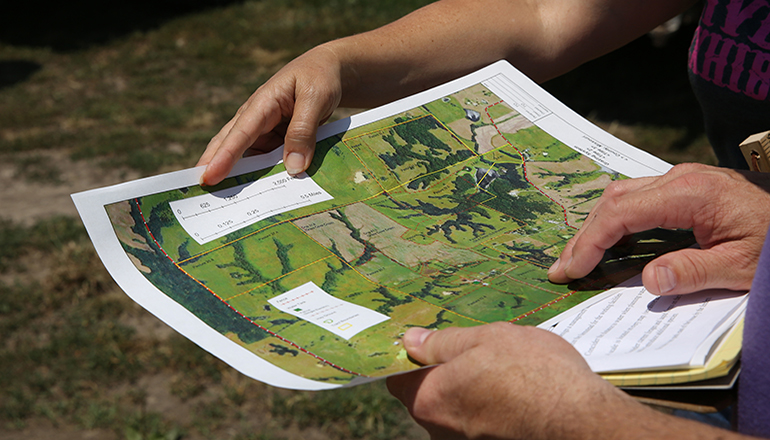The University of Missouri and the USDA Natural Resources Conservation Service will postpone their annual series of management-intensive grazing schools in 2020 due to safety concerns about COVID-19.
Organizers will look at the situation in late May to consider options, said MU Extension forage specialist Craig Roberts.
NRCS and MU Extension specialists hold more than 30 regional grazing schools annually during the forage growing season. This period will intersect with the projected peak of coronavirus spread in Missouri during May and gradual decrease through June and July.
Now in its 30th year, the program has become the go-to school for Midwestern forage producers, Roberts said. Controlled grazing results in higher-quality grass, less waste and more pounds of livestock gains per acre, he said.
“It is a highly effective program, largely because of how it is taught—not through a computer but with hands-on learning and classroom-to-field exercises,” Roberts said. “Topics include economics, water availability, soils, nutrition, fencing, plant growth, and development.”
Roberts asks for producers’ patience as organizers wait. “We want this prestigious program to remain a prestigious program,” he said.
For more information, contact your local NRCS field office or MU Extension center, or contact the Missouri Forage and Grassland Council (www.mofgc.org) at 573-338-1772 or [email protected].
Since the 1980s, MU has helped cattle producers learn better grazing techniques through MU’s pioneering grazing research. In 1990, MU joined with the USDA Natural Resources Conservation Service to hold schools at MU’s Forage Systems Research Center in Linneus. The program went statewide several years later.
Over time, the grazing schools have attracted more partners such as the Missouri Department of Conservation, Missouri Forage and Grassland Council and Missouri Department of Agriculture. The partners contribute to research, cost-share incentives, and educational outreach to promote the adoption of management-intensive grazing. The impact of the grazing schools reaches beyond Missouri, as several other states have established grazing schools based on the MU program.
Forage-livestock enterprises contribute more than $12 billion annually to the state’s economy, providing direct income for more than 200,000 Missourians.
Missouri has the nation’s third-largest cow-calf herd, the second-largest number of beef producers and the seventh-largest number of dairy farms. Missouri also is the second-largest producer of grass hay. No other Missouri agricultural enterprise covers more acres, generates more real income or engages as many citizens, Roberts said.







